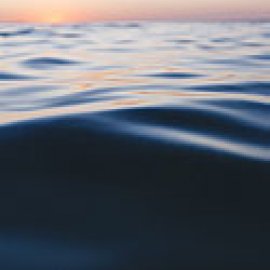Megaphonics: Ocean Communication Heroes
-
English
-
ListenPause
[intro music]
I’m Peter Neill, Director of the World Ocean Observatory.
Consider the megaphone: a simple tool with the single purpose of amplifying a message. Consider the qualities of heroism: as prosocial, altruist action that in involve personal risk and sacrifice.
The key to any strategy for ocean advocacy is communication, the purposeful amplification of a powerful idea, strong, consistent, relentless, evocative, effective. We say we live in a “communications world,” and indeed the means are diverse and the cacophony deafening. How do we break through? How do we create a message that tells and reaches the listeners out there, the millions of “Citizens of the Ocean” whose lives are so dependent on the ocean’s bounty, its purity and sustainability so essential to our survival?
In this edition of World Ocean Radio, I’d like to celebrate two brilliant communicators, two astonishingly dedicated and determined advocates for the ocean, two elders who demand our respect for their commitment and success as ocean heroine and hero: Dr. Sylvia Earle and Sir David Attenborough, whose combined ocean messaging for so long has reached millions worldwide.
Dr. Sylvia Earle has accomplished so much, as a research scientist, technical innovator, ocean explorer, educator, and tireless proponent of the best ocean practice for the best outcome. She has presented the argument with quiet clarity, openness, and continuity, always in the context of hope and the possible. No one, no place is too difficult to connect: endless classrooms, civic groups, environmental conferences, interviews, and now podcasts and web-based connections. She has opened our access to the undersea world, worthy partner with Jacque Cousteau, permitting our access to deepness, both in depth and meaning. She has continuously identified and shown us “hope spots,” many now marine-protected areas, in a lifelong display of personal energy and selfless engagement. Always gracious and principled: I once attended a yacht club event in which she declared that one way to save the precious ocean was to eat no fish at all; after applause, the staff served 100 plates of swordfish; she politely declined and excused herself, off no doubt to another ocean appointment.
Sir David Attenborough represents another approach to the challenge. His career is as a broadcaster, long-time BBC programming director, producer and host, a natural historian, author, filmmaker, and vocal supporter of multiple environmental issues. He too speaks quietly, with the authority of study, but not necessarily comparable ocean experience. The many BBC series he has produced and narrated include Natural World, The Planet Earth series, and The Blue Planet. Each of these, each episode, reached an average of 5 million viewers per broadcast, in one instance almost 10 million in one go. Each was characterized by astonishing photography, his persona and quiet, authoritative narration, and an ethical commitment to revealing the wonder of the natural world as a self-affirming assertion of its value and our need to sustain it.
Over 100 million reached worldwide? Probably. The exponential effect of such effort represents multi-dimensional communications success, messaging at the scale required if we are to truly create a global constituency for the ocean that will protect, through politics and demand in the context of understanding and love f or all the natural resources of what another great communicator, Jacques Cousteau, call “the great hydrosphere.”These two are special exemplars and we can never acknowledge their personal sacrifice and risk. But they are not alone, and I could make a list of the many, many more who are comparably engaged in one way or at one scale or another. You will find them engaged everywhere, in ocean research, policy, education, governance, and advocacy worldwide. They represent a chorus in complement and support of Sylvia and David, heroine and hero, part of a vast megaphonic collective that is equally purposeful and loud, pro-social, altruistic, and devoted. We must pay attention to them all, hear their messages, and take it to heart and as action into the oceanic world where we all swim.
We will discuss these issues, and more, in future editions of World Ocean Radio.
WORLD OCEAN RADIO IS DISTRIBUTED BY THE PUBLIC RADIO EXCHANGE AND THE PACIFICA NETWORK, FOR USE BY COLLEGE AND COMMUNITY RADIO STATIONS WORLDWIDE. FIND US WHEREVER YOU LISTEN TO PODCASTS, AND AT WORLD OCEAN OBSERVATORY DOT ORG, WHERE THE FULL CATALOG OF NEARLY 700 RADIO EPISODES IS SEARCHABLE BY THEME.
[outro music]
This week on World Ocean Radio we're talking about the megaphonics of ocean communications. How do we as communicators break through? How do we create messaging that resonates and reaches the millions of citizens whose lives are so dependent on the ocean’s bounty? We highlight two ocean heroes, Dr. Sylvia Earle and Sir David Attenborough, whose quiet successes have combined to reach millions worldwide.
About World Ocean Radio
Peter Neill, Director of the World Ocean Observatory and host of World Ocean Radio, provides coverage of a broad spectrum of ocean issues from science and education to advocacy and exemplary projects. World Ocean Radio, a project of the World Ocean Observatory, is a weekly series of five-minute audio essays available for syndicated use at no cost by college and community radio stations worldwide.
- Login to post comments



